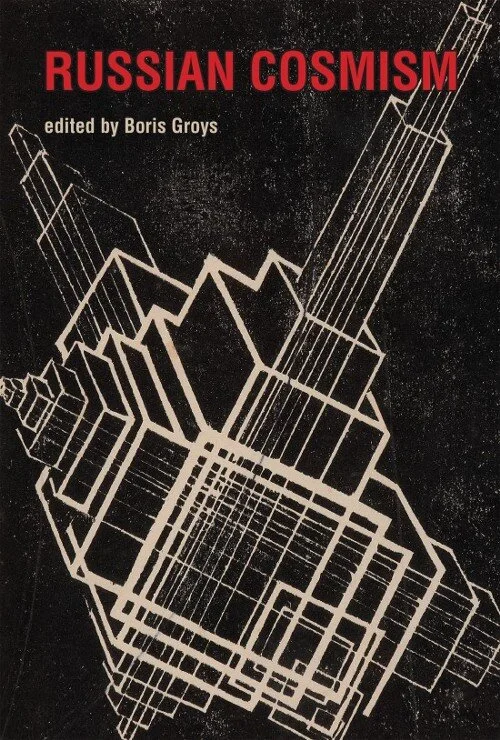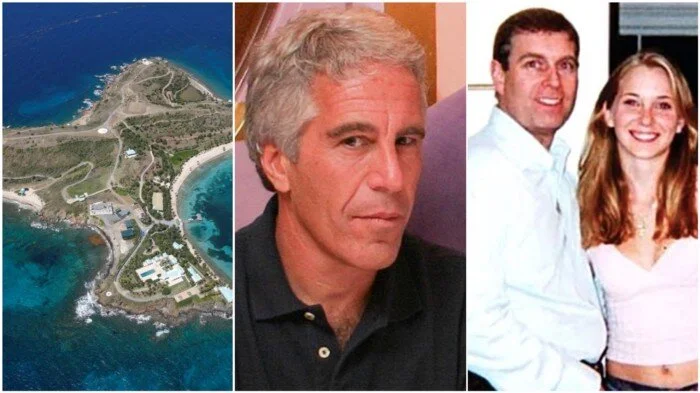On Cosmists, God-builders, and SpaceX
Space eugenics in Moonraker
I feel like my worldview has changed in the last few months, partly as a result of reading Thomas Huxley.
He’s a wonderful writer — better than Aldous — and I find his worldview appealing, with its metaphysical agnosticism and emphasis on the power of science to control nature and improve our world.
I think it’s possible to combine that view with a sense of spirituality — a sense of the connection of our individual consciousness to the cosmos, and the unfolding of a higher intelligence, even if one is agnostic about how or why that is happening.
Thomas Huxley gave us a view of Deep Time — a vision of evolution occurring over billions of years, and not the 6000 years which Victorian Christians said the Earth had existed for.
He gave us a view of cosmic history, and human existence as a millisecond in that grand drama.
But what a millisecond it’s been. From cavemen to spacemen in a few thousand years.
His student HG Wells suggested that humans are embarked on a great, uncertain adventure. We are only at the very beginning of this adventure, and we are likely to continue evolving and exploring in ways that are impossible to imagine now.
The greatest obstacle on this journey is our lack of optimism and imagination. Our tendency to small mindedness and tribal bickering.
As Francis Bacon, Elizabethan genius and inventor of modern science, said: ‘’By far the greatest obstacle to the progress of science and to the undertaking of new tasks and provinces therein is found in this — that men despair and think things impossible.’
An important part of this great adventure is surely the exploration and population of the cosmos.
We made tremendous strides towards that goal in the 20th century, culminating in the moon landing in 1969.
But it’s been a little quiet since then, hasn’t it?
This weekend, a new era begins with the SpaceX launch — an era of commercial space travel.
It’s both an exciting and a worrying moment in the human adventure.
Also this week, as it happens, I have been reading about an extraordinary cultural movement in Russia, at the beginning of the 20th century, called Cosmism.
Its founding father was Nikolai Fyodorov, a regional schoolteacher who became a librarian at the state library in Moscow.
He was a saintly, ascetic figure, single, celibate, he slept on a trunk with a book for a pillow. He always wore the same raggedy coat, and cursed himself if he ever had money in his pockets which he had failed to give away.
He had a simple vision. Firstly, the aim of all human endeavour should be immortality. He was an Orthodox Christian, but believed this immortality would be achieved by science, not prayer.
Secondly, we should resurrect everyone who has ever lived. We owe it to our ancestors to do this (his philosophy is an extreme form of ancestor worship).
Thirdly, we should populate other planets, so we have room for all these humans. We could do this perhaps by turning planet Earth into a spaceship and flying it through the cosmos to other planets (he coined the idea of ‘spaceship Earth’ in the late 19th century).
His vision and ascetic life were very appealing to other Russian thinkers. Tolstoy deeply admired him and went to hang out with him whenever he could — Fedorov called him a fool, and said he was a very good novelist who became a very bad philosopher (which is fair enough). Dostoevsky was also an admirer.
His most influential student, however, was a young country bumpkin called Konstantin Tsiolkovky, whose self-education Fedorov supported when he visited the library.
Tsiolkovsky went to live in a log house on the outskirts of Kaluga, where he set about inventing how to fly rockets into space (among other achievements). He eventually became the father of the Soviet space programme.
He had a grand cosmic vision for humanity. All matter was intelligent and alive, he said. Every atom was full of bliss. We need to create beings of higher intelligence and send them out through space on his rockets, so that the entire universe pulsates with bliss.
He also, rather more darkly, thought we should eliminate all lower forms of intelligence, including pretty much all animals and less intelligent humans.
Cosmism influenced a lot of Russian and Soviet art, science and philosophy. It also had an influence on a Bolshevik movement called ‘God-building’, associated with the scientist and Bolshevik commissar for Enlightenment, Anatoly Lunacharsky.
He was part of the Bolshevik ‘Immortalization Commission’, which explored how to achieve immortality and resurrect the dead — starting with Vladimir Illich Lenin.
Lunacharsky was put in charge of building Lenin’s mausoleum, which was meant to be a temple to his (and everyone’s) future resurrection. Fedorov likewise saw museums as temples to our ancestors, sleeping one day to awaken.
This is what Night of the Museum is really about, by the way. The eventual resurrection of the dead.
I’ll be back
Now the cosmists were clearly crazy religious enthusiasts. But nothing is achieved in life without a little enthusiasm.
The week before, I read a book called The Immortalists, about two early transhumanists — French Nobel-prize-winning surgeon Alexis Carrel and Charles Lindbergh, the first man to fly across the Atlantic, and how they invented a mechanism which enabled humans to have organ transplants. Carrel also invented the procedure to sew together arteries after operations. He saved millions of lives. He and Lindbergh dreamt of immortality, and thought it could be achieved.
Reading about them, the Cosmists, and other transhumanists, I have started to wonder…
Is it possible humans really could live forever? Or at least hugely extend our life expectancy?
After all, we have doubled our life expectancy since Francis Bacon’s day. Could this happen again, and again, and again?
Could we not travel through space, and learn to converse with the higher intelligences which I have no doubt exist elsewhere?
Why not!
It reminds me of a lunch I had in San Francisco with an associate of Silicon Valley transhumanist billionaire Peter Thiel. I don’t usually move in such wealthy circles, this was a rare occasion and alas I had to pay for my own lunch.
Like Peter Thiel, this person was optimistic he would live forever. What do you want to do with forever, I asked him. ‘Explore space’, he said.
Well, I admire a person with an optimistic vision. We are all of us in the gutter, but some of us are looking at the stars.
My only concern is this.
In these enthusiastic dreams of evolutionary spirituality and cosmic expansion, one sometimes finds a hidden or not-so-hidden elitism.
It turned out, for example, that Charles Lindbergh and Alexis Carrel did not believe in immortality for everyone. No, only for the white intellectual elite (they were both white supremacists).
Likewise Julian Huxley, Thomas Huxley’s grandson, believed in transhumanism and scientists’ ability to steer human evolution. But he was an authoritarian elitist and a lifelong eugenicist.
Again and again, in evolutionary spirituality, one finds a similar hard edge — only the elite, the Pharaohs, the superbeings, will evolve and ascend. The sub-humans, the slaves, must accept their lower species-status, their enslavement, or be exterminated.
Watching the Jeffrey Epstein documentary on Netflix this week, I can’t help but see how this elitist philosophy can play out. Epstein was a firm believer in transhumanist eugenics. Like Julian Huxley, he wanted to use his sperm to create a tribe of super-beings.
He treated the tens, if not hundreds, of school girls he raped as his slaves. He and Ghislaine Maxwell seemed to think of themselves as gods, as superhuman Nietzschean predators, and the humans whose lives and souls they consumed simply didn’t matter.
It reminds me of Ghislaine’s father, press baron Robert Maxwell, who would urinate off the top of his skyscraper onto the meaningless masses below.
Now…to return to space travel, one can see two possible futures playing out.
Either everyone gets to share in this great cosmic adventure, somehow. That was Fedorov’s vision: immortality for all.
Or it is confined to the elite, the 1%, the Nietzschean God-men, beyond good and evil, like Jeffrey Epstein.
You already see space eugenics — the eugenicist environmentalist Garrett Hardin argued, in the Whole Earth Catalog’s special edition on space colonies, that you’d need to select the population for a space colony based on its genetic fitness, and it would be better for everyone if they were all the same race. Whitey on the moon, as Gill Scott-Heron put it.
Today, you have geneticists like George Church of Harvard suggesting humans could be genetically modified to make them better able to survive in space.
And you have Silicon Valley billionaires dreaming of space colonization and immortality.
But not for everyone. Only those who can afford it.
The super-rich already own islands where they can pretty much do what they want — Epstein had his ‘paedo island’ where he could cavort like Tiberius the perverted Emperor on his island of horrors in Capri.
Imagine Epstein in space. Who could stop him there?
Jeffrey Epstein owned an island in the British Virgin Islands, nikcnamed ‘paedo island’, where he invited his elite friends like Prince Andrew, and gave them access to his harem of trafficked girls - like Virginia Roberts, pictured with Prince Andrew.





